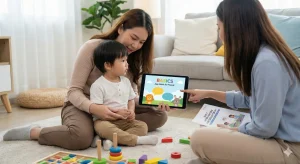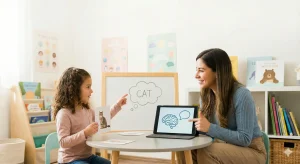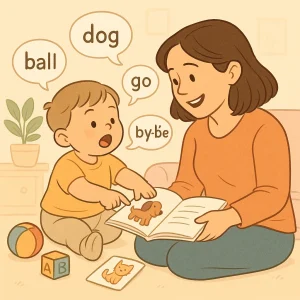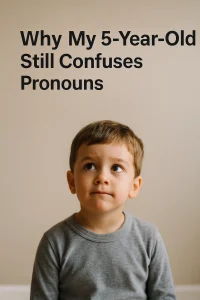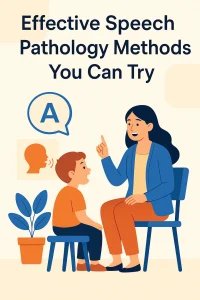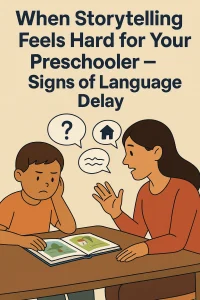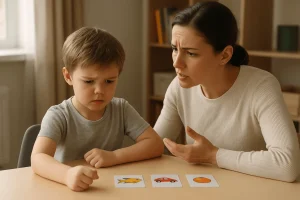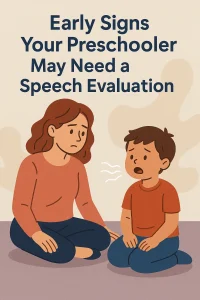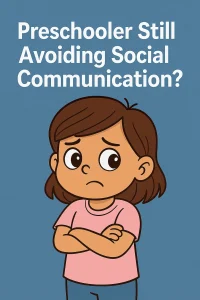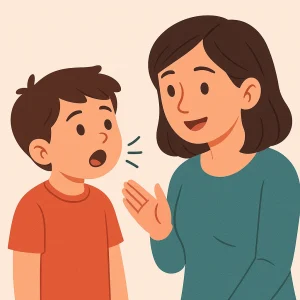Speech and Language Milestones – 4 to 5 years
By Wellness Hub
Last Updated: November 1, 2023
As children grow year by year, their language skills keep growing. They learn from their environment through imitation and understanding. It seems very fascinating how the little ones develop their skills in their learning process. These milestones though vary between children of the same age they, are crucial indicators of their cognitive and social development.
The development of speech and language skills of a 4 to 5-year-old can be analyzed in different areas such as phonology, syntax, semantics, pragmatics, and literature. It is because, by this time, the child acquires certain skill set in all these areas of speech and language. You can observe significant changes in their choice of words, clarity in pronunciation, knowledge of meaning of the words used, formation of sentences, and the way of expressing opinions, ideas, thoughts, and interests.
Let us delve deep into the skills acquired by a 4 to 5-year-old child regarding their speech and language milestones.
Phonological development
The usage of words, their pronunciation, and the vocabulary gained can all come under the phonological development of a child.
Speech Sounds
Children around 4 years of age would gain much fluency in their mother tongue. However, there might still be some errors in producing some word blends and complex consonant clusters. Around 5 years of age, your child’s speech would be more intelligible even to unfamiliar listeners.
Vocabulary growth
Typically, a 4 to 5-year-old has a vocabulary of 1,500 to 2,000 words, including nouns, verbs, adjectives, pronouns, and prepositions. They will able to differentiate between yesterday, tomorrow, and other time concepts. Around 5 years of age, kids start using more descriptive words to express themselves and understand basic concepts.
Syntactic Development
Around 4 to 5 years, children learn to use complex structures in building sentences. They would also clearly state when they negate anything.
Sentence Structures
Children of this age group try to form more complex sentence structures. They try to use “but,” “and,” and “because” to connect their sentences. Their sentences would become longer, complex, and more grammatically correct.
Negations
Children around this age are firm at negating something they don’t want or like. They would clearly say, “I don’t want that”. They will also question on various aspects using what, when, why, who, or how. Around five years of age, we can observe that their questions become logical and substantial.
| Receptive language | Expressive language |
| 1. Comprehends how, far, little, all a few you both. | 1. Uses “below, inside, on top, out, what, who, where, why, whose, how and no” |
| 2. Comprehends simple past and continuous tenses. | Uses a little, fat, black, remote proximal. |
| 3. Comprehends causative verbal sentences(ex: got it done by him) | Tends to enact in body posture and gesture what is told in story. |
| 4. Comprehends question types of yes, no questions often . | 4. Uses 4 word sentences and is nonfluent. |
Semantic Development
Around 5 years of age, children would develop an interest in choosing the usage of words, categorizing the words according to what they imply, and speaking up their thoughts aptly. They would also stand firm on their favorite topic to debate. For instance, you might hear them say, “Ice cream is tasty and good for health, too. I know”.
Word associations
By now, children acquire good vocabulary, know meanings of different words, and try to use them wherever suited. They can identify synonyms and antonyms, displaying a good grasp of the language.
Categorization
Around 5 years of age, children start to categorize objects and ideas. They can do basic categorizations like fruits, animals, and colors. This ability to group and classify is a good sign of their cognitive development.
Pragmatic Development
As children grow older, their conversation and interactions get improved. Their social communication and narrative skills show advancement when compared to the previous year. The ability to debate and clarify any concerns is also seen during this age. Under any disputable circumstances, they try to prove their part and try to compare and contrast for that.
Social language skills
By age 5, children learn the basic rules of conversations, such as turn-taking, listening patiently, answering appropriately, and also being polite. Having a group of friends and maintaining good manners during social interactions are also a part of this. You can observe them using “please” and “thank you” more often than before.
Narrative Skills
The ability to narrate a coherent and sequential story gets developed. Children would describe events in logical and sequential order. Their descriptions might include relevant information necessary. For example, they might say, “No! I didn’t go out to play when it rained! Actually when I started playing with my ball, then it started to rain”. All this is essential for literacy development.
Literacy development
Around five years of age, children would develop the skill to identify certain words, images, and associate them with familiar objects. Their reading and writing skills start to improve at a good speed. Those initial scribbles on walls would now turn into directed, controlled, and orderly writings.
Print Awareness
By age 5, children would become aware of print in their environment. They can recognize their own name in print. Children would understand that print has significance. Some kids would even recognize few common words. Kids would develop interest in activities such as sketching and coloring, which can foster their learning process.
Reading and Writing
Basic reading skills would emerge by the age of five. Children may recognize letters and their corresponding sounds. They might attempt to write their names and other simple words. When children around this age scribble, it resembles their controlled and structured writing. They would also try to read billboards and hoardings on roads. Some kids would also display interest in reading all the numbers they find anywhere.
| Receptive language | Expressive language |
| 1. Comprehends noun or phrases (big red house). | 1. Can narrate the story on his own |
| 2. Distinguishes between comparative superlative degrees. | 2. Uses simple past and past continuous tenses. |
| 3. Comprehends opposite concepts, brother is boy and sister is a girl. | 3. Has a vocabulary of 1500 to 2500 and is nonfluent. |
| 4. Comprehends singular-plural contrast for nouns. | 4. Uses past regular verbs (went). |
| 5. Comprehend prepositions at the side of, in front of, between. | 5. Comprehend prepositions at the side of , in front of, between. |
| 6. Can identify most of the alphabets and can discriminate appropriate picture. | 6. Uses how much, in front of, while, straight, that, this, there, a, the. |
| 7. Can read all the alphabets on his language | 7. Uses numbers up to 3 and can write all the letters of alphabets. |
How to develop speech and language skills of your child?
The speech and language milestones of 4 to 5-year-old children can indicate a remarkable journey of their development. Skills like mastering speech sounds, having improved clarity in the choice of words, growing vocabulary, and understanding the meaning of various words to develop social language skills can all indicate magnificent academic and social language skills. It is important to have children exposed to a language-rich environment, as enthusiasm and exposure can foster learning. It is the external stimuli that encourage our brains to develop and learn. Hence, having them participate in social interactions helps a lot. Children also learn a lot from peer groups.
It is of course, a common thing to observe variations between children in achieving these milestones. If you observe any kind of concerns relating to the speech and language skills of your child, it is good to meet a speech therapist and have the initial consultation done.
We at Wellness Hub offer a free initial consultation that helps clear off all your speech concerns. Our experienced and empathetic speech-language pathologists are here to extend their support through online speech therapy sessions. They are also qualified to conduct a speech assessment based on which therapy plan is prepared. Our speech BASICS app can help your child to continue therapy even after the sessions, with all those fun activities and exercises that foster learning.
Book your Free Consultation Today
Parent/Caregiver Info:
Client’s Details:
* Error Message
